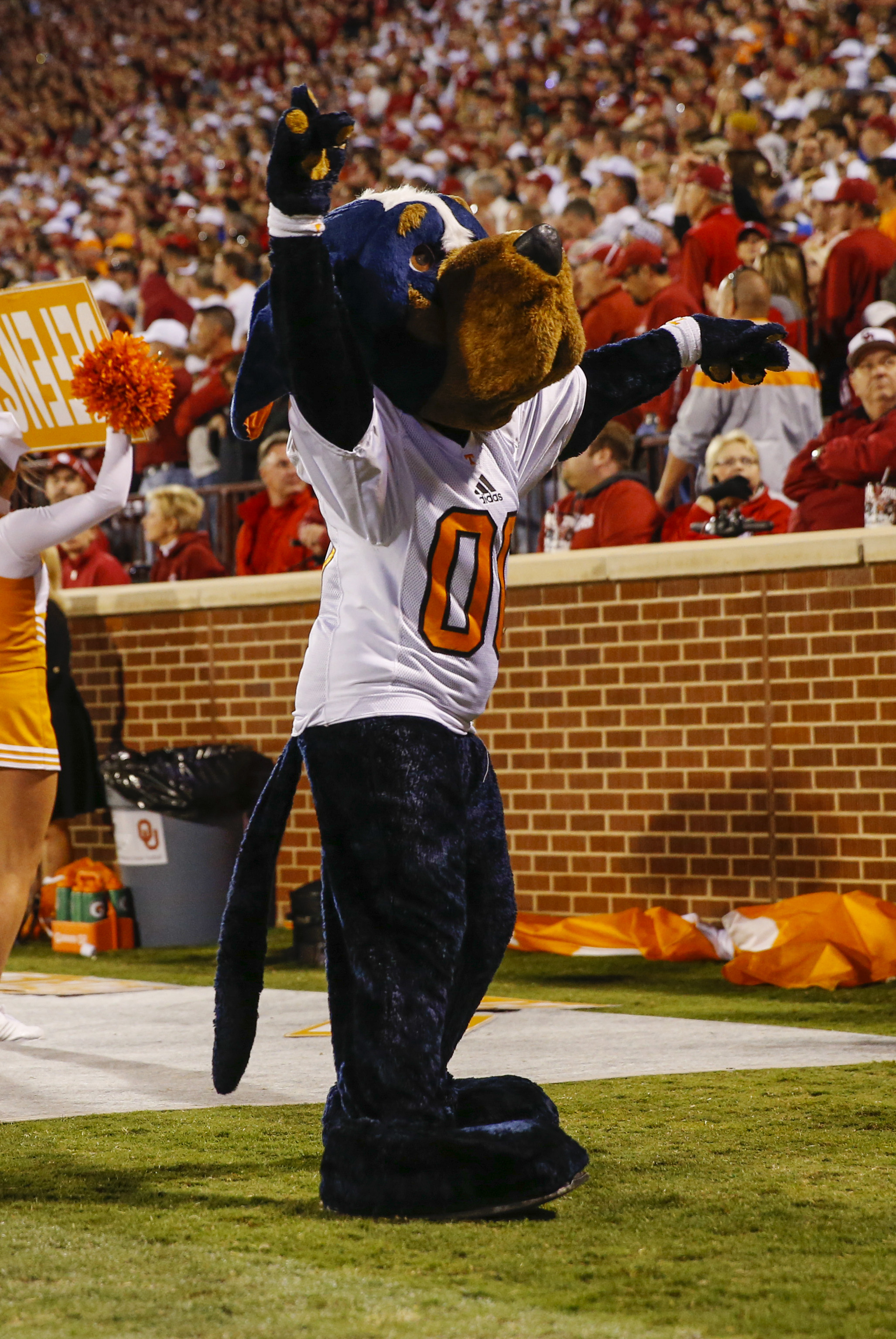
The University of Tennessee’s nickname was born out of its state’s incredible history of sacrifice.
It screams of courage and bleeds of brave souls, who volunteered to fight for America’s freedom and wouldn’t run from a challenge.
Two centuries later, the Tennessee Volunteers who play at Neyland Stadium try to act and play with those same qualities to win football games, not wars.
What’s in a school’s nickname? Well, at Tennessee, pretty much everything.

The Volunteers. It’s far from the Wildcats, Bulldogs or Tigers, fine nicknames but very common ones. As common as Volunteers is so incredibly different. It strikes a chord of curiosity.
It should beg a fan of any team, and especially those born into fandom of the team in Knoxville, to ask aloud, “Why are we the Volunteers?”
The answer arrives straight out of an American history book, which in itself should make Tennessee players and fans proud. The answer in effect helped keep America afloat after it had just gained its independence from England during the Revolutionary War. The answer, simply, is rooted in hard-earned victory.
Because tensions were still simmering between the U.S. and England after the American Revolution, which eventually led to the War of 1812.
“The fledgling American republic was in a vulnerable position: young, not so far removed from a major war and unable to agree on the merits of having a standing army,” explained Evan Scott Schwartz of SI.com.
A guy named Andrew Jackson, a Tennessee native, was appointed colonel of the Tennessee militia, and states were being asked by President James Madison to raise militias to help fight the war. So Jackson gathered an army that was made up almost entirely of volunteers, or “non-professional soldiers” as Schwartz called them.
Some estimated this Tennessee army of volunteers to be an astounding 20,000, and the Jackson-led force was instrumental in securing big victories for America, highlighted by its triumph over the British at the Battle of New Orleans.
“Winning that battle made Jackson a hero (and eventually president), and when Tennessee raised another massive volunteer army of 30,000 men for the Mexican-American War in 1846, there was no longer a doubt: Tennessee was the Volunteer State,” Schwartz wrote.

According to Tennessee’s university website, the secretary of state asked for 2,800 Tennessee volunteers during the Mexican-American War and got 30,000 respondents.
About 50 years later, “volunteers” with a lowercase letter became Volunteers with a capital letter, as the football team at the University of Tennessee was given the nickname to celebrate and honor the thousands who put their lives on the line for the U.S. without even full training.
Tennessee trotted out its first football team in 1891, the ghosts of those volunteer war heroes giving way to the Volunteers of the gridiron, though according to the Tennessee website the Atlanta Constitution was the first to call Tennessee’s athletes “Volunteers” after a Tennessee-Georgia Tech game in 1902.
The football Volunteers were now carrying the ultimate motivation with them every time they took the field. They were named after heroes, winners, in wars that helped shape their country’s history. And now they were trying to win battles of their own, albeit much smaller and less significant ones.
Nickname provides inspiration
Imagine being a football player at Tennessee, opening up a history book and reading about what those original volunteers sacrificed and ultimately brought home with them. Each history lesson would be a pregame pep talk in itself.
Tennesseehistory.com described one particular welcoming to those courageous volunteers after the Mexican-American War:
“The brave Tennesseans who had ventured off to Mexico returned home to heroes’ welcomes across the state. The City of Nashville hosted a barbecue for the thousands of returning soldiers. The veterans were honored with parades in every Tennessee city and town. The men had officially brought home with them not only a tradition for strength and courage under grueling conditions, but a reputation for service under fire. One that would forever in the annals of American history earn Tennessee the ‘Volunteer’ nickname.”
The Tennessee football program has played more than a century of games since taking that honorable Volunteer badge, and all they have ever been are just games. The players aren’t fighting wars. They are just fighting to win a game.
But the words used in praise of those original volunteers should surely have inspired a player wearing those orange-clad jerseys to gain a few extra yards or make an open-field tackle.
Strength. Courage. In grueling conditions.
Service under fire. In football terms, that would be a player’s toughness in the face of adversity.
Tradition.
And, maybe, like in 1998, a heroes’ welcome, not for something so enormous like a war victory but for a national championship.
At some programs, legendary coaches inspire. Or the tradition of winning inspires the next group.
In Tennessee’s wonderfully unique case, it’s the nickname that should always provide the inspiration.
Cory Nightingale, a sports copy editor at the Miami Herald, lives for Saturdays. He especially enjoys the pageantry, tradition and history of SEC football.







